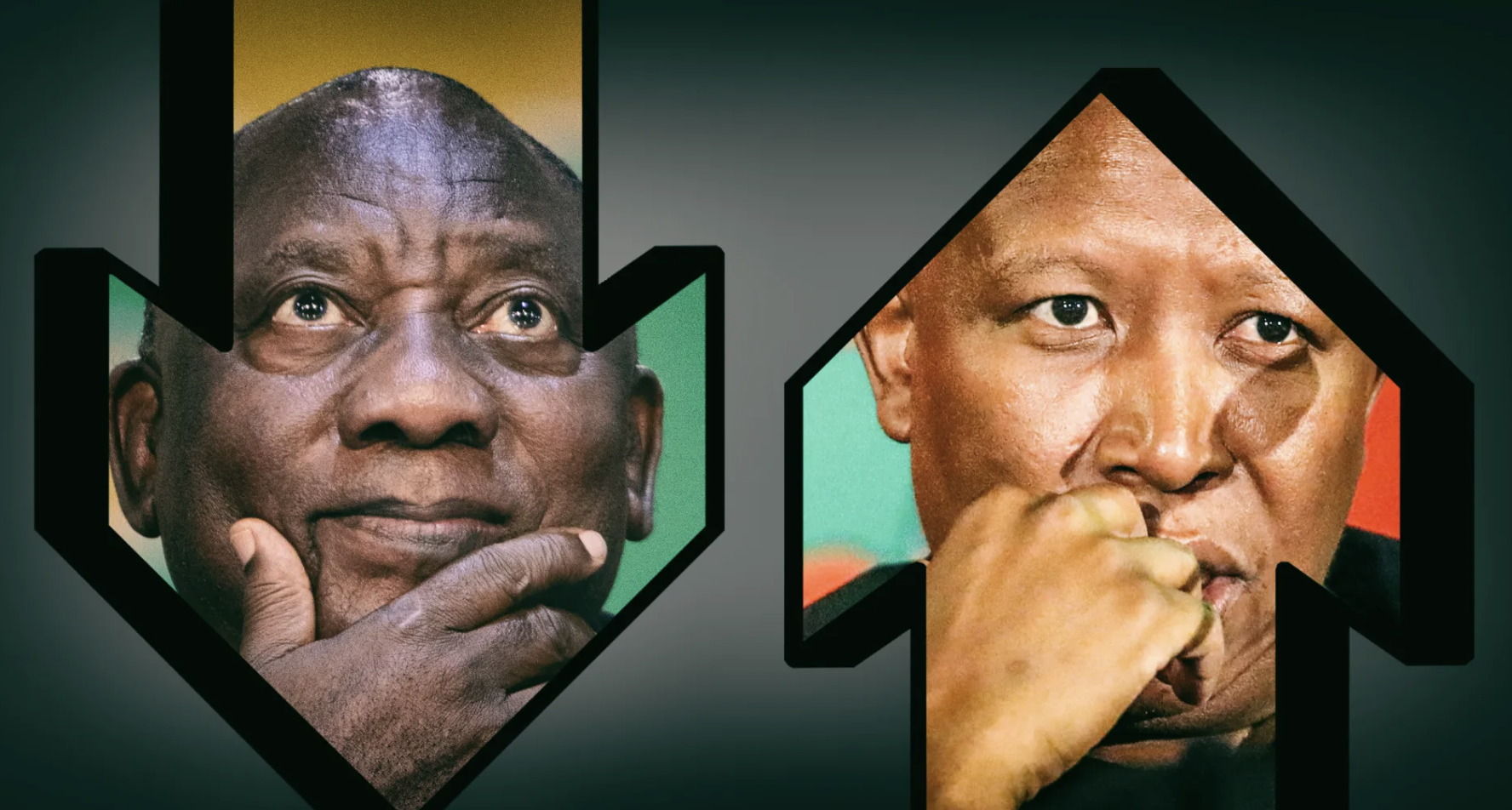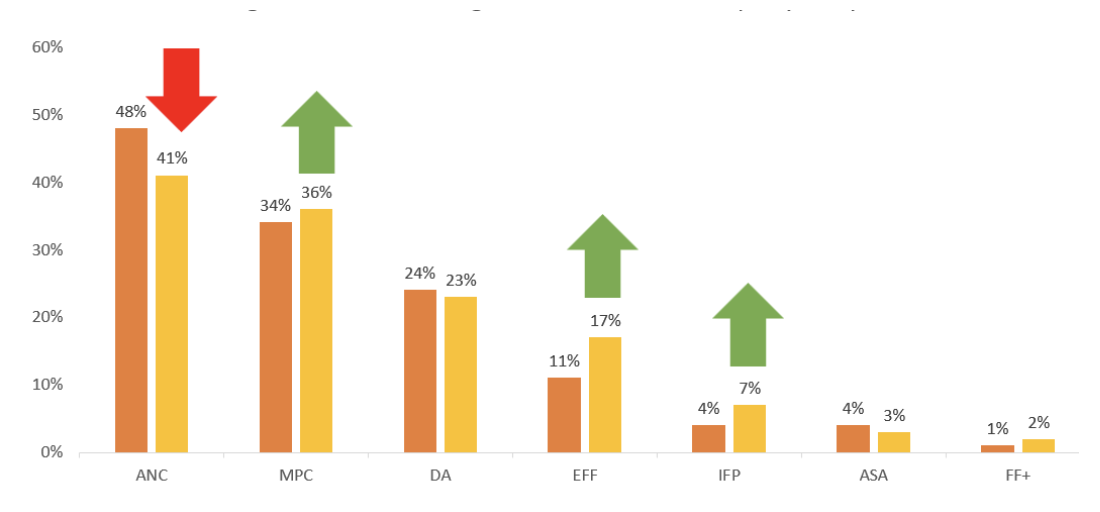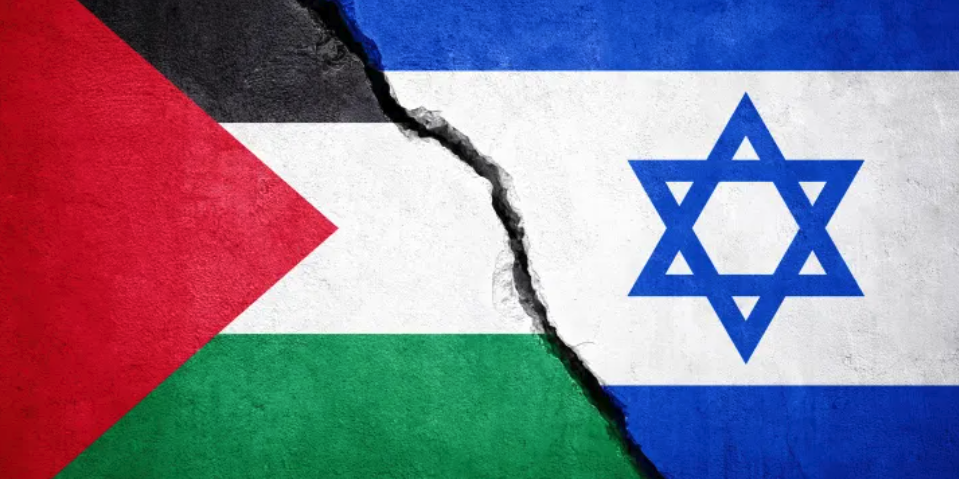News
Fresh Poll Shows ANC Dropping to 41% and a Path to Victory for Multi-Party Charter
There is a route to power for the MPC, but it will require frank internal conversations and honest assessments of where to focus efforts and resources.

Former Research Director, The Brenthurst Foundation

Strategic Communications Advisor

Former Director, The Brenthurst Foundation

The prospects of a coalition government following next year’s election are more likely than ever, according to data from a recent nationally representative poll conducted by Sabi Strategy and The Brenthurst Foundation.
However, what such a coalition looks like and how it is achieved, remains unknown.

This is the second such poll in the past year, allowing a comparative view from a sample carefully weighted by race, demographics, gender and geography. With the ANC’s support dropping from 47% to 41% over the past year, a trend that seems likely to continue in a downward spiral against a backdrop of an electricity crisis and collapse in the infrastructure, no single party is close to reaching the 50% threshold.
The Multi-Party Charter [MPC] — the electoral pact so far comprising the DA, IFP, ActionSA, FF+ and the UIM — would reach 36% based on the latest numbers. The gap between the ANC and the MPC has narrowed from 14% a year ago to 5% now.
The EFF is another big gainer, improving its support from 11% to 17% over the same period. The temptation for the ANC and EFF to bury the hatchet and form a coalition may have increased following these poll numbers. Such a coalition would probably result in the inclusion of EFF leaders in top government positions and the adoption of some of its populist policies, risking economic disaster on top of 17 years of low growth and infrastructural and social decay.
This is not the only possibility. For example, a coalition between the IFP and the ANC would inch that coalition closer to 50%, and above it in the event of a low turnout. It could also involve political horse-trading — ruling KZN, for example, in exchange for national support the other way. But this scenario presumes that the IFP’s voter base would be willing to make such compromises, which is less likely now that it is committed to the MPC.
One way or the other, an era of fierce political competition is dawning for South Africa, which has been electorally dominated by one party for nearly 30 years. This is also true of the largest provinces.
In Gauteng, the ANC is at 37% and the EFF 18%, compared with the DA’s 24% and ActionSA’s 5%. The IFP is at only 1%.
In KZN, the IFP is at 27% and the DA 19%, with the ANC at 32% and EFF at 15%.
In the Western Cape, which was widely regarded by respondents as being the most effectively managed province, the poll has the DA getting 56% of the vote compared with the ANC at 22% and the EFF with just 3%. That shows not only that governance and politics matter, but that the DA has yet to translate this message to the rest of the country in a convincing manner that trumps identity.
These three provinces — Western Cape, KZN and Gauteng — comprise 56% of South Africa’s population and 63% of its economic output.
Dive down deeper into the data and you see similar patterns emerging within provinces too, from region to region. Popular local candidates often have the ability to buck a national or even provincial trend.
Frank conversations and honest assessments
These differentiating regional voting patterns are significant and present the MPC with a challenge to work with, not against, the currents of local political popularity.
There is a path to victory for the MPC, but it will require frank internal conversations and honest assessments of where to focus efforts and resources. These decisions would have to be taken soon and then stuck to by all its members according to a consistent narrative relating to voter concerns.
According to the survey, 83% of South Africans rank unemployment, corruption, load shedding and crime as the most important issues facing the country. Moreover, most respondents (57%) hold the ANC government of the past three decades responsible for South Africa’s problems, up from 51% a year ago, and only 5% viewed apartheid as responsible for their plight, down from 9%.
There is a trend in coalition politics for the smaller parties to be cannibalised by the bigger ones, largely because voters ultimately cannot distinguish between the identity and policy positions of the main party and the junior coalition parties.

To avoid that happening with the MPC, the parties would have to go into any pact with their eyes wide open and operate on consensus and compromise. This would only conceivably be achievable on the basis of common objectives through individual party identities.
It is only this approach that can deliver votes in places other parties cannot, as many voters — particularly the ANC’s black African ANC voters — have previously felt there is no viable alternative to vote for. It is time for political leaders to give them that alternative.
There is some hope. The vast majority of respondents (74%) surveyed said they would be happy to see a coalition of parties govern SA. This suggests many voters may be prepared to enable parties to govern, even if they would not be prepared to vote for these parties themselves. This should embolden those parties within the MPC to be true to their identities while campaigning on common causes.
There is more positive news for the MPC in this regard, despite the crisis of highly unstable coalitions in some metros, including Johannesburg. Half of South Africans are familiar with the brand only two months after its launch, and one-quarter of respondents said they were more likely to vote for an opposition party following the launch of the MPC.
The DA now has overall greater political favourability (37% from 36% a year ago) than the ANC (30% from 39% a year ago), and the ANC’s unfavourability among respondents has risen from 38% to 44%, while the DA’s declined from 41% to 36%, suggesting that issues and the record of delivery are of increasing importance.
After the dismal failures of recent years which have led to the energy crisis, dilapidation of key infrastructure and the private sector’s collapse of confidence, South Africans seem increasingly desperate for change. The onus is now on political parties to convince the public that they can deliver it.
This article originally appeared on the Daily Maverick
Photos: Leila Dougan and Gallo Images / OJ Koloti

